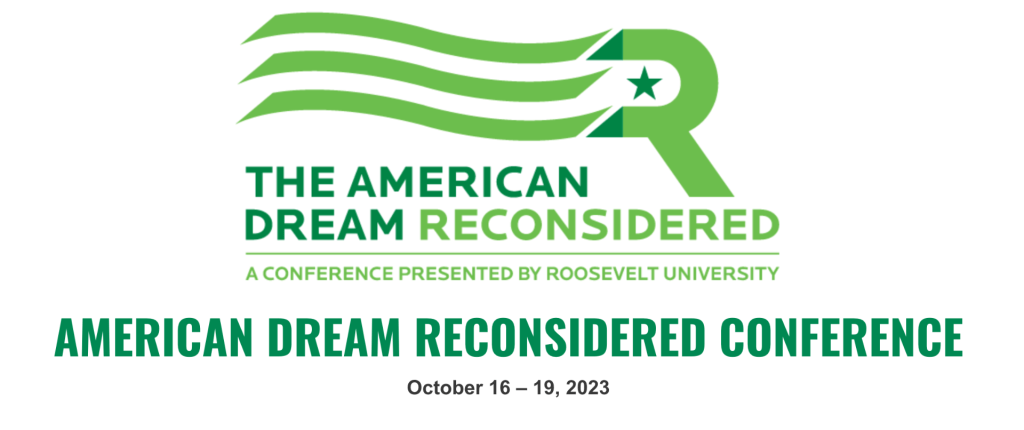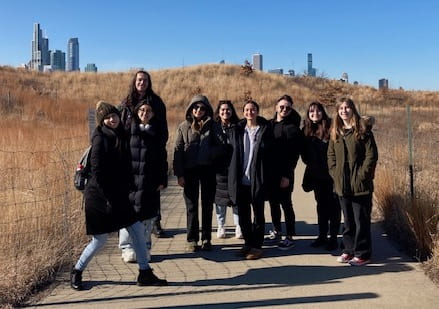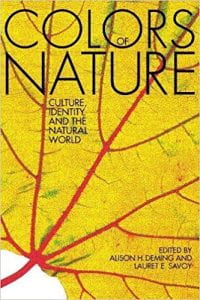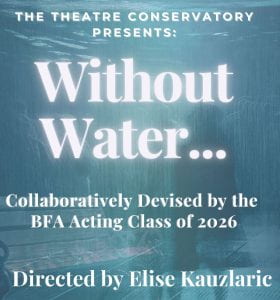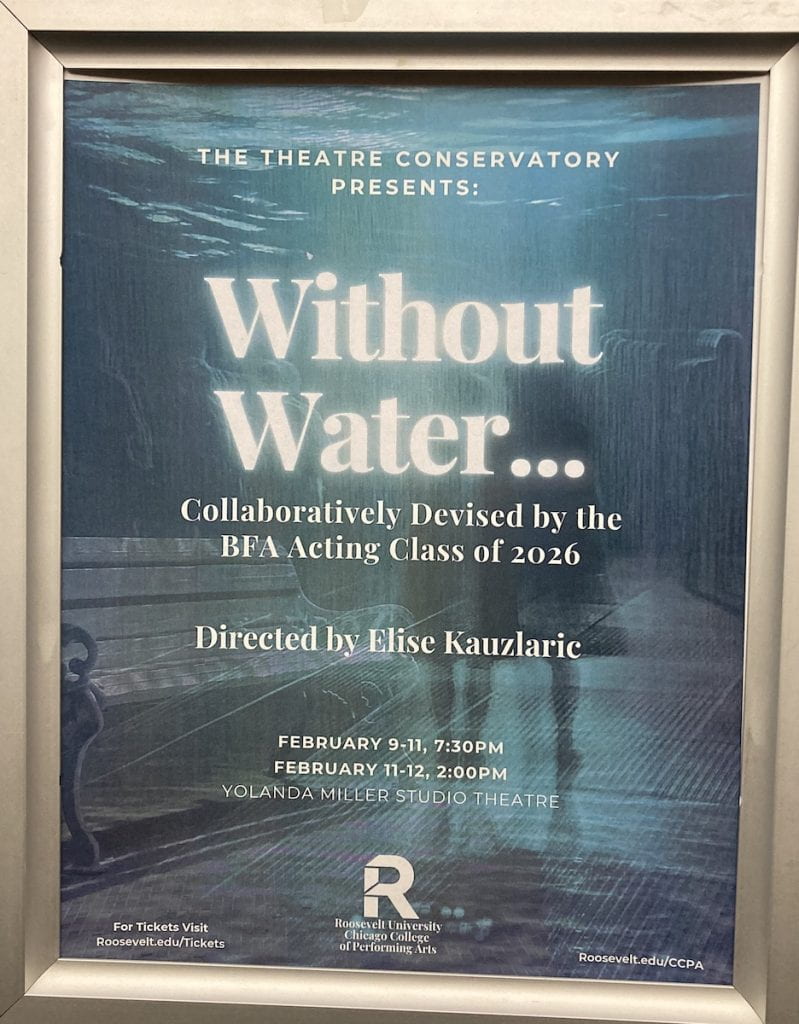This summer of 2025, Roosevelt’s Office of Student Research and Department of Law, Society, & Sustainability will support 8-10 undergraduate students in a Community-based Research and Environmental Justice experience (CREJ). A cohort-based summer research course based here in Chicago, this competitive fellowship includes tuition funding for a 3-credit EXL/research-focused urban sustainability and environmental justice course on selected Fridays (9:30am-1pm) from June 6 through August 1 during RU’s 8-week summer session. In addition to a tuition waiver for the course, students will receive a small stipend to help defray travel costs from RU’s Chicago Campus to our community organization partner. You can . . .
During this summer’s Community-based Research and Environmental Justice course, undergraduate students will participate in a hands-on and field-based introduction to urban sustainability and selected research and analytic methods in the humanities and social sciences. Students will gain experience doing community-based research (CBR) in collaboration with the Southeast Environmental Task Force (SETF), one of Chicago’s oldest grassroots conservation and environmental justice organizations. In addition, they will synthesize their findings and have opportunities to present their work at events such as Roosevelt’s annual Student Research and Inquiry Symposium (RSRIS).
Based in the Hegewisch neighborhood on Chicago’s Southeast Side, the Southeast Environmental Task Force has advocated since the 1980s for the people and ecosystems of the culturally and biologically diverse Calumet industrial region that spans Chicago’s far South Side, near south suburbs, and communities of northwest Indiana. SETF’s current initiatives and activism include several key issues within urban sustainability: climate and environmental justice advocacy; pollution reduction; clean energy policy; land use and sustainable development; green space conservation; and public health.
 Industry on the Calumet River, Chicago IL (photo: M. Bryson)
Industry on the Calumet River, Chicago IL (photo: M. Bryson)
Student applicants may be from any major and should have completed at least 15 hours of college credit; have earned a C or better in ENG 102; and have an interest in learning about community-based research, urban sustainability, and/or environmental justice.
Eligibility
- Current Roosevelt University undergraduate student in any college or major (except those graduating in May 2025)
- At least 15 credit hours completed at the time of application, including earning a C or better in ENG 102 (or, if currently taking ENG 102 this spring, a recommendation from the instructor is required)
- GPA of at least 2.0 overall (2.5 minimum preferred)
- Interest in learning about urban sustainability, doing applied research in the humanities and/or social sciences, working collaboratively with a local environmental organization, and exploring the neighborhoods, natural areas, and industrial landscape of Chicago’s historic Southeast Side
Fellowship Requirements and Benefits
- Participate in an 8-week interdisciplinary hybrid seminar on selected Fridays 9:30am-1pm and online on Blackboard from June 6 through Aug 1. Class meetings will be at RU’s Chicago Campus and at selected field locations on Chicago’s Southeast Side. Online work is required in addition to the scheduled class and field trip sessions.
- Work effectively as individuals, in small teams, and in collaboration with our community-based organization partner (the Southeast Environmental Task Force).
- Earn 3 EXL course credits toward graduation (SUST / SOC / POS 262 Environmental Justice).
- Gain first-hand knowledge of the remarkable people, industrial sites, and natural areas of a truly unique area of Chicago.
Application Info
Apply here for the Community-based Research and Environmental Justice Course Fellowship (application review begins April 11th, final deadline to submit April 18th, 2025). Or, go directly to the link below or use the QR code:
Students do not need to register for the course. All students will be notified about their application status once applications are reviewed. Students accepted to the CREJ program will be registered for the course by the Office of Student Research and at that time, tuition will be paid by the OSR.
For questions or more information, please contact:
- Mike Bryson (mbryson@roosevelt.edu), SUST Professor and Chair of the Department of Law, Society, & Sustainability
- Laura Nussbaum-Barberena (lnussbaumbarberena@roosevelt.edu), Director of the Office of Student Research and the Policy Research Collaborative
For an informational flier, click here (pdf)


